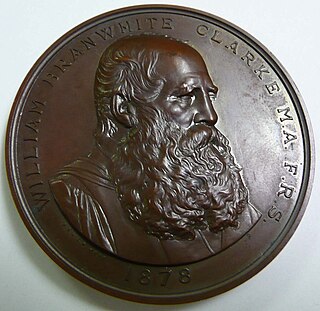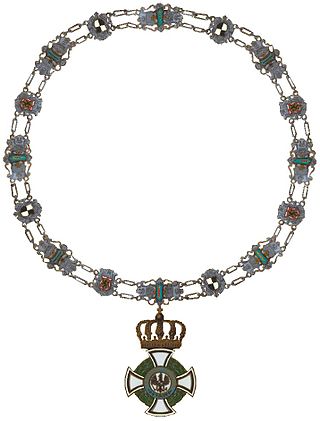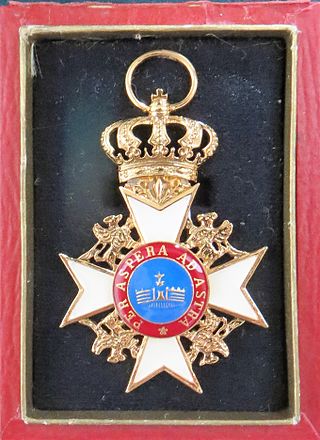
The Geological Society of London, known commonly as the Geological Society, is a learned society based in the United Kingdom. It is the oldest national geological society in the world and the largest in Europe, with more than 12,000 Fellows.
This is a list of scientific phenomena and concepts named after people. For other lists of eponyms, see eponym.
More Letters of Charles Darwin, a sequel to The Life and Letters of Charles Darwin of 1887, was a book in two volumes, published in 1903, edited by Francis Darwin and Albert Seward, containing as the title implies, additional publications of 782 letters from the correspondence of Charles Darwin.

The Linnean Medal of the Linnean Society of London was established in 1888, and is awarded annually to alternately a botanist or a zoologist or to one of each in the same year. The medal was of gold until 1976, and is for the preceding years often referred to as "the Gold Medal of the Linnean Society", not to be confused with the official Linnean Gold Medal which is seldom awarded.
The Murchison Medal is an academic award established by Roderick Murchison, who died in 1871. First awarded in 1873, it is normally given to people who have made a significant contribution to geology by means of a substantial body of research and for contributions to 'hard' rock studies. One of the closing public acts of Murchison's life was the founding of a chair of geology and mineralogy in the University of Edinburgh. Under his will there was established the Murchison Medal and geological fund to be awarded annually by the council of the Geological Society of London.

The Lyell Medal is a prestigious annual scientific medal given by the Geological Society of London, equal in status to the Murchison Medal. This medal is awarded based on one Earth Scientist's exceptional contribution of research to the scientific community. It is named after Charles Lyell.

The Clarke Medal is awarded by the Royal Society of New South Wales, the oldest learned society in Australia and the Southern Hemisphere, for distinguished work in the Natural sciences.

The House Order of Hohenzollern was a dynastic order of knighthood of the House of Hohenzollern awarded to military commissioned officers and civilians of comparable status. Associated with the various versions of the order were crosses and medals which could be awarded to lower-ranking soldiers and civilians.
The Murchison Fund is an award given by the Geological Society of London to researchers under the age of 40 who have contributed substantially to the study of hard rock and tectonic geology. It is named in honour of Prof. Roderick Impey Murchison.

The House Order of the Wendish Crown is a dynastic order that was jointly instituted on 12 May 1864 by Grand Duke Friedrich Franz II of Mecklenburg-Schwerin and Grand Duke Friedrich Wilhelm of Mecklenburg-Strelitz. It is the oldest and most senior order of the House of Mecklenburg.






